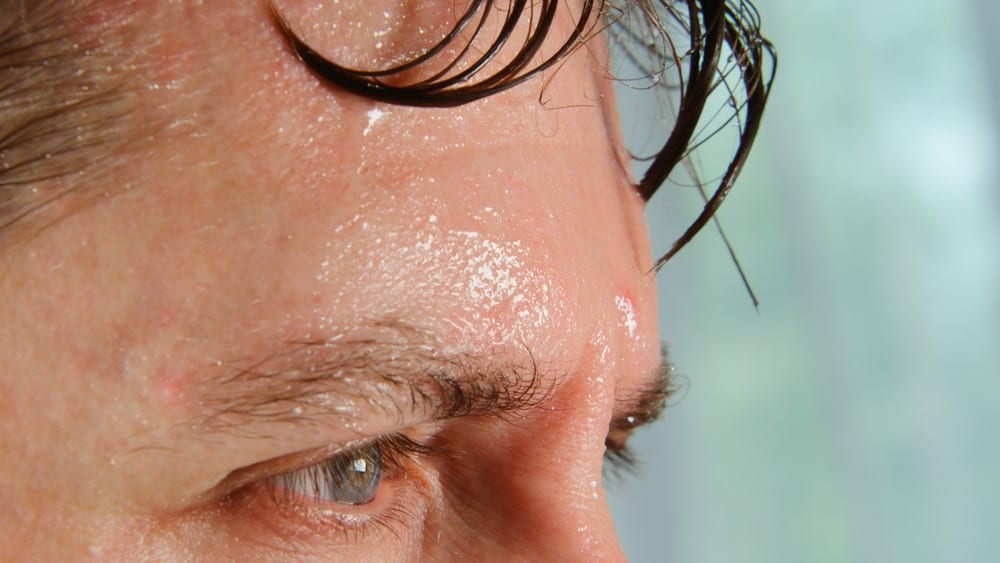
Sweat is a form of temperature control that your body uses to cool itself. It’s normal to sweat after intensive workouts or when it’s too hot. However, excessive sweating can be uncomfortable and may affect certain body parts. Excessive sweating on the face can be embarrassing and can lead to low self-esteem and isolation.
Why does my face sweat so much? Excess sweating on your face can result for various reasons and can be a sign of hyperhidrosis.
Check out the common causes of facial sweating:
1. Physical activity
Intense physical activity can lead to sweating, and your face is not exceptional. Common exercises include running, jogging, or lifting weights. You may also experience sweating on other body parts like the back and armpits, and this will depend on the intensity of the exercises. However, facial sweating may also be influenced by other conditions. These can be stress and anxiety, and you can use antiperspirant lotion to ease excessive sweating and enhance your comfort.
2. Stress & Anxiety
Stress and anxiety can trigger your body to boost adrenalin production, resulting in a temperature rise. Stress can also stimulate sweat glands to produce sweat to cool your body. This leads to increased blood flow on the skin, which, combined with the release of stress hormones, can cause sweating on the face. However, learning how to stop sweating will help ease the discomfort by acquiring the right products.
3. Hot weather
High temperatures can lead to sweating to cool the body. The face comprises various sweat glands, and it is common for swelling to take place on the face. However, the amount of sweating will depend on factors like humidity and hydration levels. You can stay in the shade, apply a cold compress, or use SweatBlock antiperspirants to manage excessive sweating. Additionally, staying well-hydrated by drinking water throughout the day can help regulate body temperature and reduce the impact of hot weather on facial swelling.
4. Health issues & medications
Some medical conditions can cause facial sweating, and these can be hormonal imbalances or hyperthyroidism or neurological disorders. Other illnesses, like fevers and flu, can result in increased body temperature, leading to sweating. Menopausal women also get hot flashes and may sweat excessively due to hormonal imbalances and rapid body changes.
Similarly, some medications may have side effects, and sweating is common. These may include;
- Antidepressant medications
- Antipsychotics
- Beta-blockers- blood pressure medications
- Hormonal medications
- Antiviral medications
It’s vital to speak with your doctor if you think that your drugs are causing excessive facial sweating.
5. Spicy food
Eating lots of spicy food can stimulate your sweat glands, resulting in facial sweating. The active component responsible for the heat is capsaicin, which activates receptors in your mouth and on your tongue. This sends signals to your brain that your body has come into contact with something hot. The body then initiates a cooling mechanism, mainly through sweating on the face and other body parts.
Conclusion
Facial sweating may happen due to various factors, but the good thing is that you can control it with the help of the different high-quality antiperspirants available. Discuss this with your doctor to rule out any medical conditions, and acquire the best sweatblocks to manage excessive facial sweating.
